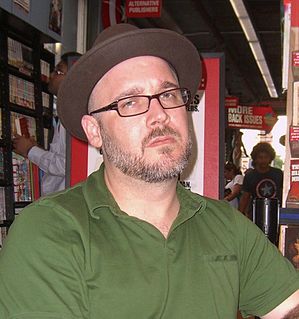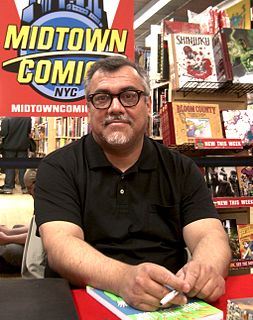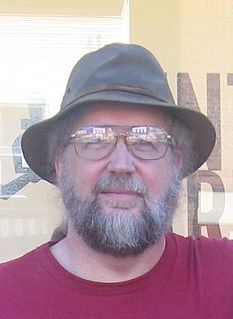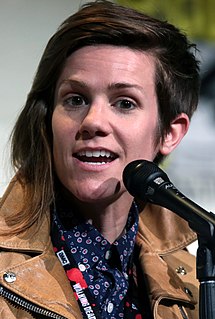A Quote by Rob Liefeld
Anything that is good influences the next thing. It's inevitable. I believe that Hollywood influences the comics, and the comics influence Hollywood - it's a cycle.
Related Quotes
The good part of what comics trains you to do is it trains you - especially if you've worked in mainstream comics like Marvel and DC, or if you're just doing your own independent comics - to compartmentalize things and work on multiple things at the same time. And that's a skill that is incredibly handy in Hollywood, because within the first year that you get here, you realize there's a reason why every successful person in Hollywood has like seven or eight projects up in the air at any point.
I had done a couple TV pilots, and a friend of mine wanted to leave comics and come work in Hollywood, and I said, "Well, you've got to understand that when you sell a TV pilot, imagine if you turned in the best issue of Batman ever, and DC was like, 'Well we love this, but we can't publish it because we have to publish this other thing by this other person." The odds are really long on getting anything made, so if you come from comics and you're still making a living in comics, that really helps because you're not desperate for someone's permission to write for a living.
There are a lot of good comics, no doubt, but as far as the quality of the comics goes, I think what you have is a bunch of situational comics - there are black comics that work only black crowds, gay comics that do only gay crowds, and southern comics that only work down South, and so on with Asian, Latino, Indian, midgets, etc. The previous generation's comics were better because they had to make everybody laugh.
I started drawing comics, and at first I was very influenced by the whole pop art movement, you know, Batman was on TV and all that pop art stuff? But then my next influence was in 1966, or maybe it was '65, I don't know. Somebody showed me a copy of the "East Village Other", which was an underground newspaper. And... it had comics in it! And they weren't superhero comics.
The lovely thing about writing comics for so many years is that comics is a medium that is mistaken for a genre. It's not that there are not genres within comics, but because comics tend to be regarded as a genre in itself, content becomes secondary; as long as I was doing a comic, people would pick it up.
Here's what I wish people wouldn't ask me: "Who are your influences?" That's a boring question. It's not even like, "What's it like to be a woman in comedy?" That question also happens often in interviews, but I at least understand where it's coming from. "Who are your influences" - I wonder if people ask that of male comics? Maybe they do.
The similarity is that concentration of capital influences virtually everything that goes on. It influences the way the media functions, it very powerfully influences how the government works and it of course influences corporate sector elements, like say how Google or Amazon present materials that reach the public.




































